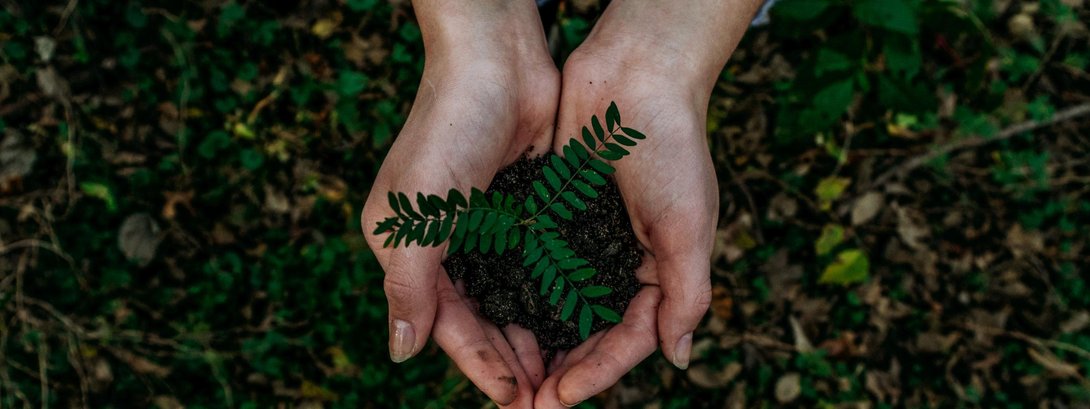Pursuing a sustainable recovery
The Covid-19-induced crisis has created unprecedented uncertainty and is transforming society in some ways that could be permanent. It is up to us to seize the change and make sure the transformation is one we can all aspire to.
Blog by Robert Marinkovic, IOE Adviser
The current crisis is forcing us to think out of the box and, because of its cross-cutting nature and impact on many aspects of society, to innovate coherent responses that create synergistic and positive effects across many dimensions. The vast amounts of funding made available through stimulus and recovery measures (up to $10 trillion according to some estimates) need to provide rapid relief and economic security but should also be used to bring about systemic change.
But this change does not mean that we need to re-invent the wheel. In many ways, "building back better" means to finally undertake the actions which we’ve known for a long time need to be done. It means accepting the triple objectives of sustainable development and Agenda 2030 (society, economy, environment) and making sure we push towards all three at the same time; in some ways, it seems like the current context has made this necessity clearer and more evident to everyone involved. To achieve this the private sector needs to play a leading role in defining international response.
Conducive business environment for effective development
Why is the private sector so important? As representatives of business and employers, IOE has long been advocating for an enabling environment for business and promoting the private sector as the engine of economic growth, job creation, improved standards of life and the potential of doing better that comes with prosperity. Conducive environments for business are not an aim, but the basis for employment, growth and development.
We all know by now how hard the private sector has been hit by lockdown and safety measures, turning off both supply and demand. This situation cannot last much longer if we are to expect a strong and efficient recovery. We note with appreciation that UN member states have stated the need for business to actively engage, and both the UN Global Sustainable Development Report (GSDR), the UN Secretary General’s March report on Economic and Social Impacts of the COVID-19 crisis and the recent "SG Policy Brief: The World of Work and COVID-19" have highlighted the crucial role of business. The pandemic has shown everyone how important the private sector, how important SMEs, how important global supply chains are.
The private sector needs to be involved in defining and implementing global cooperation efforts. We should not only be seen as a source of funding but a source of expertise, efficient change management, innovative solutions and a key partner for breaking down silos and implementation. Beyond the many developments, actions, initiatives, commitments and technologies already in progress and spearheaded by the private sector, the international community is looking for systemic action and scaling this progress to all enterprises and countries (have a look at Adecco’s, IOE Partner Company, report on the effectiveness of recovery measures and also follow our website for an upcoming policy paper on these issues). In this view, IOE is leading a project with the Konrad Adenauer Foundation on improving and scaling cooperation between UN Resident Coordinators and employers’ organisations on national level (see example of public-private collaboration in Kenya).
Agenda 2030 as the foundation for a strong recovery
The recent ILO Global Summit provided an international platform for inclusive solution-seeking and social dialogue at the highest level, allowing through the ILO’s tripartite structure a useful conversation between governments, workers and employers. This event solidified commitments and motivation from all stakeholders to recover from this crisis in an efficient way and one which does not jeopardize social and environmental goals. It also reaffirmed the importance of a conducive business environment for a sustainable recovery. Employers highlighted the need for new thinking and called for increased efforts to promote a conducive environment for the private sector as the best path to a sustainable and inclusive recovery. IOE, with several other stakeholders, has launched a Garment Initiative in response to the Covid-19 crisis to come up with a concerted and inclusive solution for garment and textile producers who have been hit hard by the economic downturn.
What is clear to us is that challenges like health pandemics, climate change, and systemic change require coordinated and smart action from all stakeholders from the private and public sectors that cuts across silos and creates coherent solutions while inclusively bringing everyone’s interests on board. This is also what the Business and Industry Major Group insisted on (see statement) during the High-Level Political Forum, the UN platform to address the current challenges and take stock of progress against the implementation of the SDGs.
IOE and its over 150 member federations are committed to a sustainable recovery built around Agenda 2030. We believe that it provides us with a transformative framework that takes into account multiple dimensions and can serve as a guiding structure for recovery and stimulus measures. IOE will pursue its efforts in coordinating policy responses with members, sharing information and data on the situation in different countries, and participating in joint initiatives and partnerships with the wider international community.
Full and productive employment and decent work can only be achieved if sustainable enterprises continue to exist and thrive. The Decade of Delivery and Action of the 2030 Agenda is off to a challenging start but if we work together, we can make it happen and achieve economic recovery while improving society and our natural environment.



